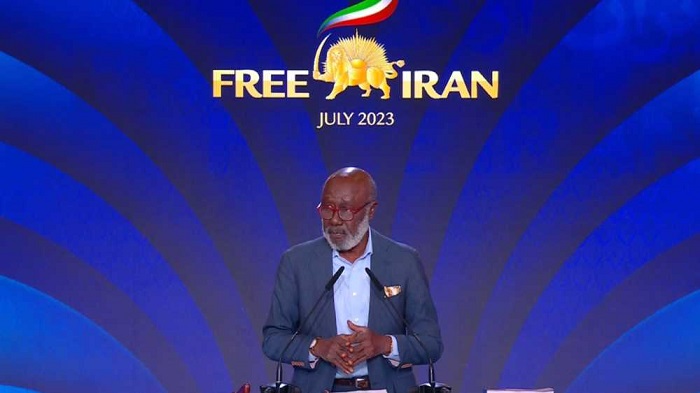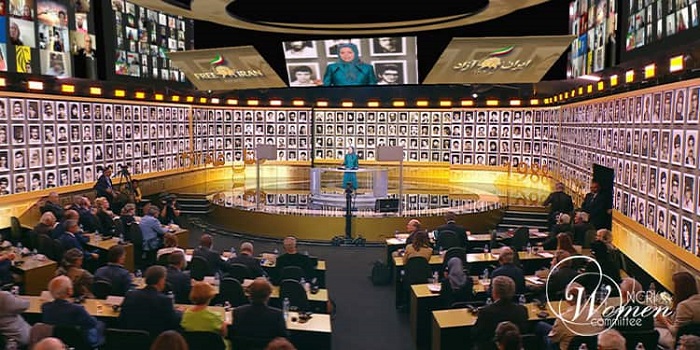
Pierre Sané, the founder and president of the Imagine Africa Institute, former UNESCO’s Assistant Director-General for Social and Human Sciences, and former Secretary General of Amnesty International, has appealed for increased international solidarity to address ongoing human rights abuses in Iran.
The meeting was held at the National Council of Resistance of Iran’s headquarters in Auvers-sur-Oise, on the outskirts of Paris. Mr. Sané, known for his long-standing expertise in human rights advocacy, critiqued the international community’s silence and inaction concerning Iran’s grave human rights violations.
In his address, Mr. Sané lamented that, “Iran continued to remain the graveyard of human rights, the graveyard where human rights violations are taking place, almost amidst the indifference of the international community.”
Crimes against humanity looms large over Ebrahim Raisi’s inauguration as President of Iran today. We continue to call for him to be criminally investigated for his role in past and ongoing crimes against humanity related to #1988Massacre.https://t.co/PrRbGhCanG
— Amnesty International (@amnesty) August 5, 2021
Referencing his own time at Amnesty International during the 1990s, he compared past atrocities including the genocides in Serbia and Rwanda, with current conflicts such as the war between Russia and Ukraine, emphasizing that Iran’s abuses have been consistent throughout.
Drawing from a recent Amnesty International report, he listed the multitude of human rights violations occurring in Iran. “Iran ticks all the boxes: massacres, torture, execution, and forced disappearance, violence against women, confiscation of freedoms and public liberties, brutality of repression,” he said.

The human rights advocate stressed the necessity of focusing on human rights over politics. “When we talk about human rights violations, we talk about victims, whoever the perpetrators are. We talk about international human rights law that binds all governments irrespective of their ideology.”
Mr. Sané underscored the importance of ending impunity for human rights violations, calling it the basis for international solidarity. Drawing on examples from history, he argued that solidarity was key to ending apartheid in South Africa and the military dictatorship in Latin America.
To conclude, he urged the Iranian Resistance to reach out to governments in the global South and pressure the BRICS (Brazil, Russia, India, China, and South Africa) nations to commit to universal human rights. He also called on progressive movements to prioritize Iran’s human rights issues.
“Solidarity is the key,” he affirmed, emphasizing the necessity of international action in the face of Iran’s ongoing human rights abuses.

MEK Iran (follow us on Twitter and Facebook), Maryam Rajavi’s on her site, Twitter & Facebook, NCRI (Twitter & Facebook), and People’s Mojahedin Organization of Iran – MEK IRAN – YouTu







